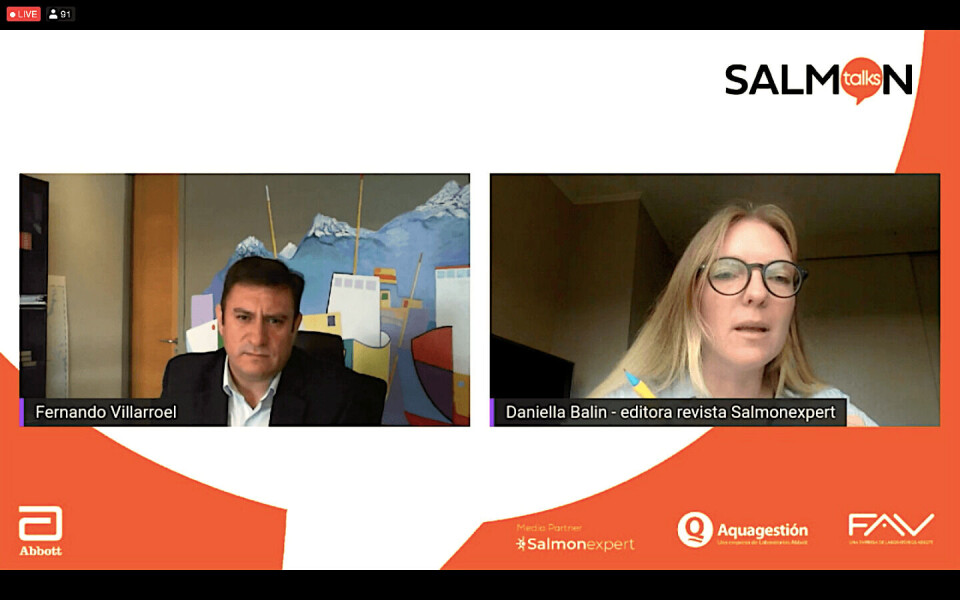
Social licence ‘fundamental’ says Mowi Americas chief
Obtaining a social licence to operate is and will be fundamental for the development of salmon farming, Mowi’s chief operating officer for the Americas, Fernando Villarroel, has stressed.
Villarroel, who is in charge of the Norwegian company’s operations in Chile and Canada, was speaking at a webinar yesterday that focused on the post-Covid challenges faced by the salmon industry.
In a presentation titled “Post-pandemic Salmoniculture: Lessons Learned”, the executive detailed the main measures implemented by Mowi to safely continue with production during the pandemic.
These included changes in shift systems and in the way workers were transported to sites, decrease in on-site staffing, and reduction of external services, among others.
The greatest challenge
Regarding the links with the communities where the farms are situated, Villarroel said: “Once the pandemic is over, we must not forget that the greatest challenge as an industry is the perception of sustainability, which covers several issues, but in terms of relationship with the communities, obtaining the social licence is and will be fundamental for the development of the industry in the future.”
He added: “We must continue working to transparently communicate our impact and establish permanent and direct dialogues; only in this way will we be able to change the perception that exists of our industry. It is a long job and we have a lot to do.”
Villarroel was speaking at the last of a series of SalmonTalks organised by the Abbott Chile Veterinary Division with the support of Fish Farming Expert’s Chilean sister site, Salmonexpert.cl.
Costly freight
Addressing the impact of Covid on the markets, Villarroel said: “The movement restrictions had a devastating effect, mainly on the Horeca (hotel, restaurant, cafe) channel, which consumed between 30% and 40% of world salmon production. Certain markets closed, causing much of the product to end up in our two main markets: the United States and Brazil.
“Unfortunately, air freight to the United States (from Chile) has had an increase of more than 50%, which has impacted on the short term the competitiveness of the country, compared to other salmon producers in the world. We are convinced that this is a short-term issue, and that this situation will stabilise in the coming months.”
Price recovery
The executive also referred to changes in consumer habits as a result of the pandemic, which has led to a significant increase in purchases of salmon in supermarkets, and the rise of e-commerce and delivery for salmon.
“All this has meant that prices in the main markets of the world are reaching pre-pandemic levels,” said the Mowi Americas boss.
Looking ahead in 2021, Villarroel said: “The consensus of analysts says that there will be a recovery in prices in 2021, led mainly by increased consumption and low supply, mainly from Chile, but we still have at least several more months of a challenging 2021 due to the pandemic.”























































